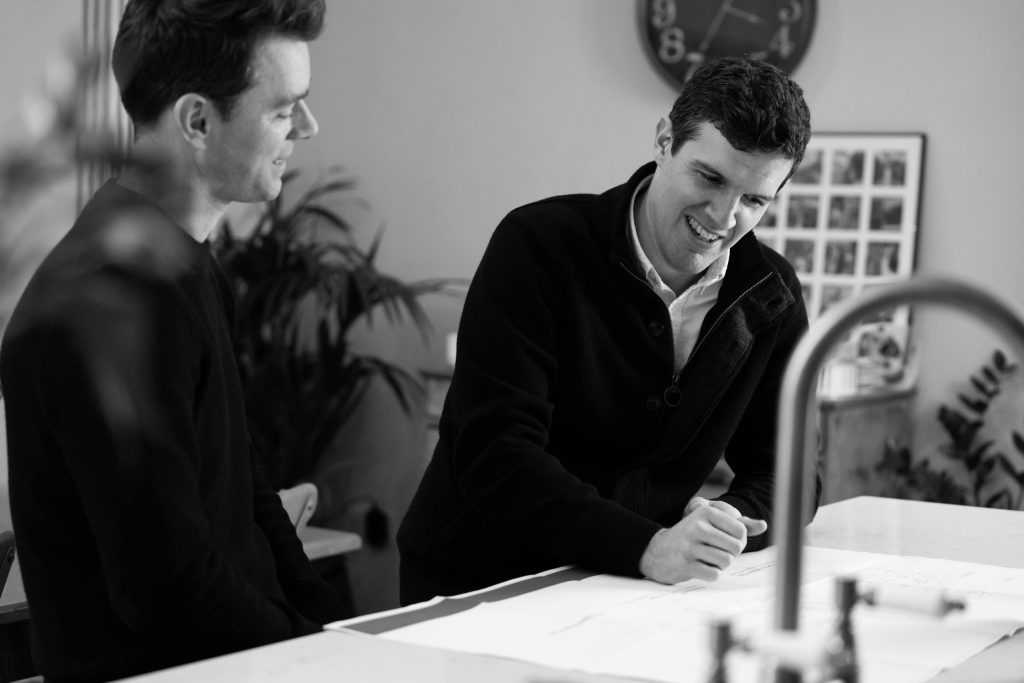Planning a home extension is an exciting yet often daunting journey that requires both a clear vision for expanding your living space and a solid grasp of budgeting. Engaging an architect, like Turner Wall, can be invaluable in ensuring your project is not only aesthetically pleasing but also financially viable. Turner Wall’s expertise helps make the process smoother, from setting a realistic budget to achieving cohesive, functional, and stylish results. Here’s how to budget for a home extension in the UK with our help.
1. Initial Consultation and Concept Development
The budgeting process begins with an initial consultation with your architect. This is a critical
phase where you discuss your ideas, needs, and budget constraints.
Key Steps:
- Outline Your Vision: Describe your goals for the extension in detail, including its purpose, size, and any specific features you have in mind. The more clarity you bring, the better your architect can tailor their advice.
- Set a Preliminary Budget: Be open about your budget from the outset so that your architect can shape the design to fit within your financial boundaries.
Turner Wall’s Approach: During this first phase, Turner Wall works closely with clients to establish a shared understanding of the project’s vision and budget. This collaborative start is key to aligning design goals with financial considerations. Turner Wall also provides transparency around anticipated architectural fees. These can be based on a percentage of the project cost (around 5-15%) or charged at an hourly rate (typically £50 to £150). However, Turner Wall will provide fixed fee quotes for each project in order that the client is able to clearly budget.
2. Feasibility Study
Once your ideas are on the table, your architect can conduct a feasibility study. This involves
assessing the practicality of your plans in terms of design, planning permissions, and local
regulations.
Why It’s Important:
- Identify Potential Issues: Your architect can spot possible challenges early on, such as structural concerns or planning restrictions, which could impact costs and timelines.
- Realistic Budgeting: A feasibility study refines your budget by providing a clearer picture of what’s achievable based on the site and your design goals.
Turner Wall’s Approach: Turner Wall offers a thorough feasibility study that includes a detailed building and land survey. This early-stage analysis helps clarify existing conditions and confirms that your design ideas can work within the set budget and site limitations. By identifying challenges ahead of time, Turner Wall ensures that you have a realistic, refined budget to guide the project.

3. Detailed Design and Planning
After the feasibility study, your architect will create detailed designs and plans for your
extension. This is where the budgeting becomes more concrete.
Key Considerations:
- Materials and Finishes: Explore materials that balance your aesthetic preferences with your budget. An architect like Turner Wall can recommend cost-effective yet high-quality options that preserve the look and feel you’re after.
- Sustainable Practices: Consider eco-friendly materials and energy-efficient designs. Although these choices may come with higher upfront costs, they can lead to savings over time through reduced energy bills and added property value.
Turner Wall’s Approach: Turner Wall works closely with clients to explore design options that meet both style and budget goals. By evaluating various materials, finishes, and sustainable practices, Turner Wall offers solutions that maintain the integrity of the design without unnecessary costs. They also handle the entire planning permission process, submitting documentation and managing any appeals if required, ensuring compliance and preventing costly delays.
Cost Consideration: Expect to spend between £2,200 and £3,500 +vat per square meter for
construction, depending on the complexity of the design and materials chosen.
4. Planning Permissions and Building Regulations
Your architect will guide you through the planning permission process, ensuring that all
necessary applications are submitted and compliant with local regulations.
Budgeting Tips:
- Application Fees: Planning application fees generally range from £200 to £600,
depending on the project type.
- Building Regulations Fees: Expect additional fees between £700 and £1200, depending on the scope of the work needed to meet building standards.
Turner Wall’s Approach: In this stage, Turner Wall provides precise, detailed plans that align with structural and design goals, ensuring all specifications meet both aesthetic standards and regulatory requirements. Turner Wall also supports clients in obtaining quotes from trusted contractors and carefully vets each one to ensure quality, helping clients understand and manage the labour and material costs upfront.
5. Obtaining Quotes from Contractors
With a detailed plan in hand, your architect can help you obtain quotes from contractors. Their
expertise can ensure that the quotes are comprehensive and reflect the project’s needs
accurately.
Steps to Take:
- Get Multiple Quotes: Your architect can assist in vetting contractors, ensuring you
receive competitive quotes.
- Understand What’s Included: Ensure the quotes cover all aspects of the project, including materials, labour, and any additional fees, so there are no surprises later.
Turner Wall’s Approach: Turner Wall emphasises the importance of a contingency budget, typically an additional 5-10% of the total project cost. This buffer accounts for any unexpected expenses, such as structural adjustments or unforeseen material costs, helping keep the project on track without delays.

6. Contingency Planning
Architects understand that unexpected costs can arise during construction. Building a contingency into your budget helps to manage these surprises smoothly.
Recommended Contingency:
- 5-10% of Total Budget: Setting aside this buffer will help cover unforeseen expenses, such as structural adjustments or delays in material delivery.
Turner Wall’s Approach: Throughout construction, Turner Wall provides ongoing support to help manage your budget. This includes regular site visits and check-ins with contractors to monitor progress and address any emerging issues. If adjustments are needed, Turner Wall works to find cost-effective solutions that keep your project aligned with both the budget and the original design vision.
7. Monitoring the Budget Throughout Construction
Once construction begins, it’s essential to keep track of expenses. Your architect can play a vital
role in this phase by:
Ongoing Support:
- Regular Check-ins: Schedule regular meetings with your architect to review the budget and track progress. These check-ins help ensure that the project stays on course both financially and in terms of timeline.
- Adjustments as Needed: If unexpected issues arise, your architect can help find cost-effective solutions or make design adjustments to keep the project aligned with your budget.
Turner Wall’s Approach: Turner Wall provides continuous support throughout the construction phase, conducting site visits and meetings with contractors. This allows for quick responses to any challenges, ensuring that the quality, vision, and budget of your project are consistently maintained.
8. Final Touches and Interior Design
After the structural work is complete, consider how to budget for the interior design, lighting design and finishing touches.
Collaboration with Your Architect:
- Interior Layout: Turner Wall helps you make the most of your interior space, ensuring that each room is functional and flows naturally with the rest of the home.
- Landscaping and Exterior Design: Beyond the interior, Turner Wall can assist with landscape design to harmonise your outdoor space with your home’s aesthetic. This includes features like access paths, gardens, and integrated outdoor areas.
Turner Wall’s Approach: With a comprehensive design vision, Turner Wall considers every detail to create a seamless transition from indoor to outdoor spaces. By coordinating interior and landscape elements, they enhance the overall appeal and functionality of your property, ensuring it feels unified and complete.
Conclusion

Planning a home extension can be complex, but with the right guidance, it can lead to a beautiful, functional space that enhances your property. This guide outlines the essential steps in budgeting and planning—from initial consultation and feasibility studies to managing construction costs and adding the finishing touches.
Working with an experienced architect, like Turner Wall, can make all the difference. Turner Wall provides comprehensive support at each stage, ensuring your project stays on budget and aligns with your vision. With expertise in architectural planning, design, and budgeting, Turner Wall helps clients navigate every phase smoothly, making it easier to turn your dream home extension into a reality.